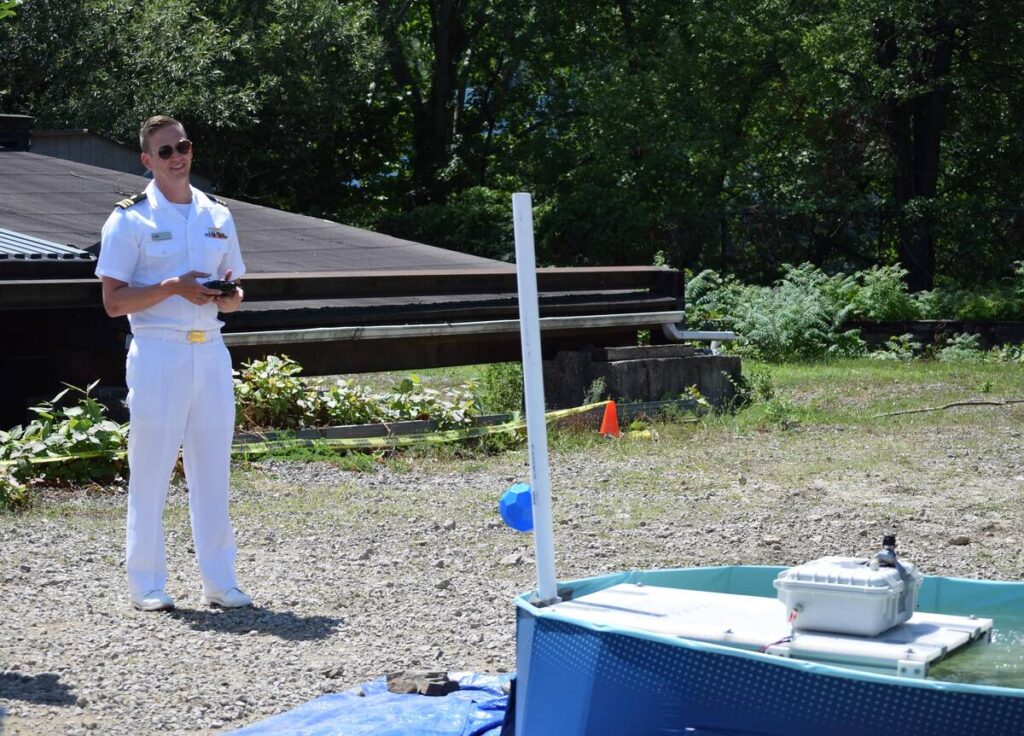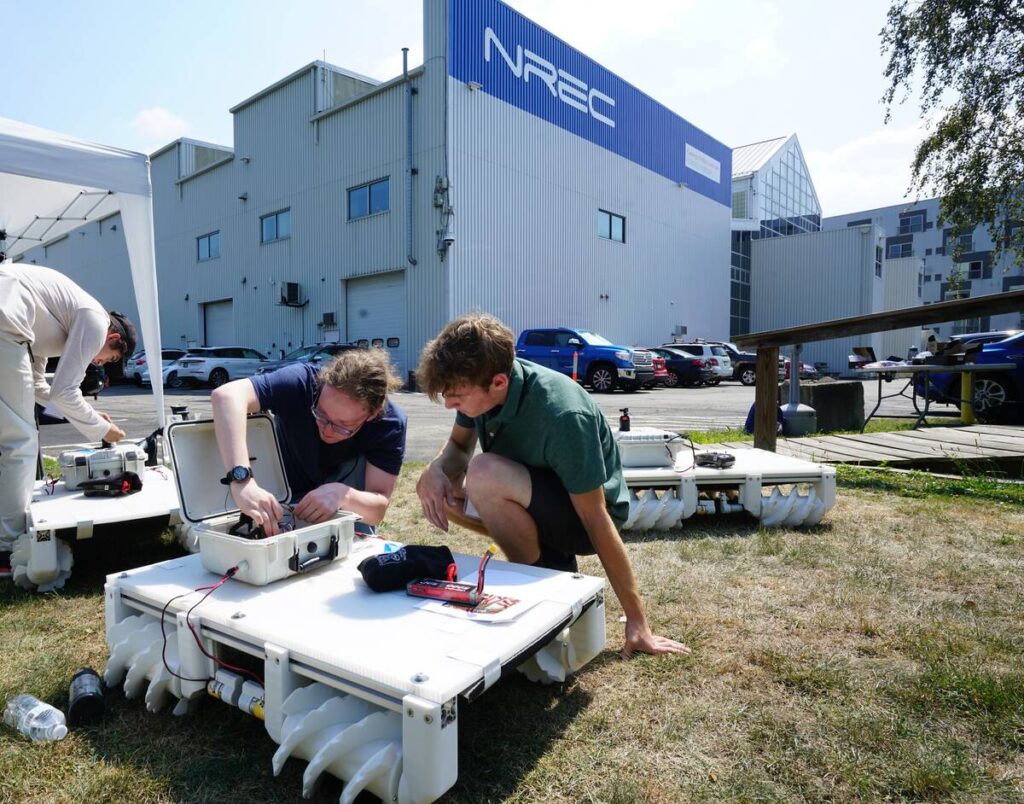August 21, 2024
By: Laura Snyder
Experts from Carnegie Mellon University and the Office of Naval Research (ONR) piloted a six week experimental training program to study how sailors can develop fundamental engineering skills to keep pace with emerging technology.
The project is part of the larger U.S. Navy effort to adapt to rapid advances in automation and robotics and stand up a new enlisted robotics job rating, the first new rating in the Navy in two decades. The experimental training leveraged curricula from the Carnegie Mellon Robotics Academy (CMRA) combined with novel lessons and material created to support the Navy’s occupational standards.

Principal investigator Ross Higashi is the co-director for research at CMRA, which studies how educators can use robots to teach computer science, science, technology, engineering and mathematics. He said the program could quickly train sailors on robotics operation, troubleshooting and safety.
“Robotics technology is changing so rapidly it doesn’t make sense to train workers — or sailors — to specialize in a particular platform or system. With the Navy, we wanted to look at how we can give trainees the foundational knowledge, skills and abilities to adapt to new or future technologies faster,” Higashi said.
“With CMRA, we are working to create a trainable, foundational skill set that is platform agnostic versus traditional methods of training to a particular system. Our initial results from the first cohort are very promising.”
Lt. Cmdr. Michael Natali, Program Officer at ONR

The current study for ONR examines how to effectively prepare enlisted sailors to quickly pick up, maintain and operate new autonomous platforms. A first cohort of sailors, in addition to local civilian high school graduates and community college students, recently completed the initial CMRA pilot training program held at the National Robotics Engineering Center.
“We are integrating more and more autonomous and semi-autonomous systems across the Navy and with the speed of emerging technologies, we need sailors capable of teaming with an evolving variety of systems, adapting and learning novel systems and features quickly, safely and effectively. The effective integration of machines within human teams is critical to maintaining maritime superiority, providing humanitarian aid and deterring our adversaries,” said Lt. Cmdr. Michael Natali, program officer at ONR. “With CMRA, we are working to create a trainable, foundational skill set that is platform agnostic versus traditional methods of training to a particular system. Our initial results from the first cohort are very promising.”
The six week program was built on two existing CMU robotics technician curricula: CMRA’s SMART Robotics Technician Training — typically used to upskill or reskill manufacturing workers — and AI User, a machine learning and artificial intelligence course for nondevelopers by the Technology for Effective and Efficient Learning (TEEL) lab’s Social and Interactive Learning at Community Colleges program. From this foundation, the CMRA and TEEL teams developed new content around the U.S. Navy use case and the needs for its emerging robotics community.
The pilot program culminated in a robotics competition event, which focused on the capacity for students to learn new, unknown systems quickly and put the students up against five highly proficient Marines. “This simultaneously produced comparison data — and motivation for the competitors,” Higashi said.
That data is now being analyzed and will inform the training of a second cohort in January, but the researchers already know they gained new insights into the experimental curriculum and how students responded to it.
“In some cases, students picked up the material faster than we expected, which might allow us to streamline the program,” said Higashi. “The shorter and faster we can get the program without sacrificing learning, the better. We want the most learning in the smallest footprint.”